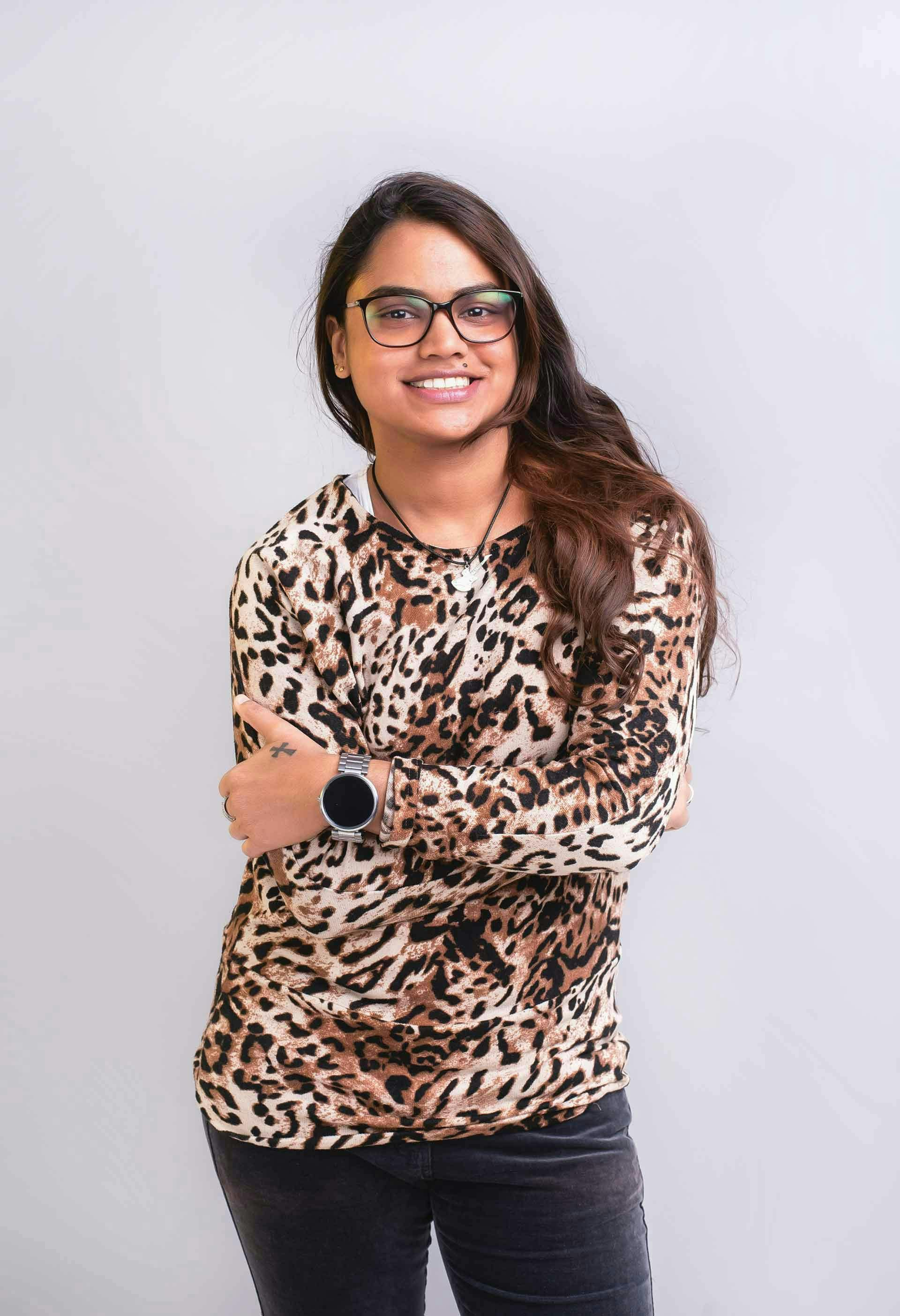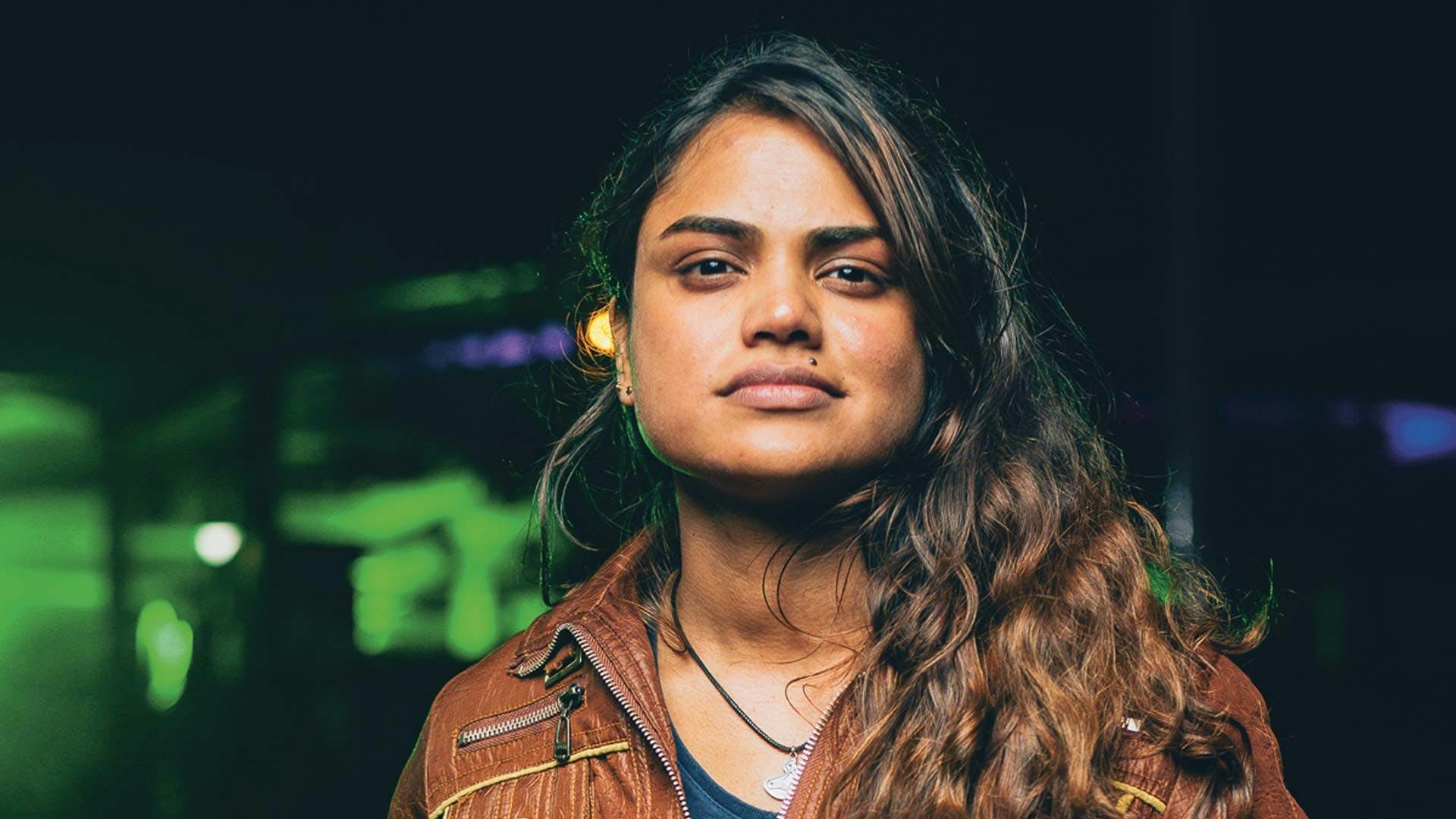Meet Jessica Colaço, cofounder of iHub and Brave
technologist, entrepreneur and ecosystem enabler, Jessica Colaço is perhaps best known in Nairobi for founding iHub alongside Erik Hersman in 2010. She has since cofounded HR-tech company Brave, a fantasy-football-like application for leaders to create and measure winning project teams, where she is VP of Growth and Success.
Born and raised in Nairobi, Jessica is a TED fellow and is passionate about building and supporting African tech-startup ecosystems. She is also a bass guitarist who has played in various Afro-fusion and rock bands in Nairobi.
Jessica shares her entrepreneurial journey so far and offers some insights into Nairobi’s startup ecosystem.
Tell us about your background, and how you got into technology.
I went to school in Nairobi and studied at the University of Nairobi, where I was an undergraduate in computer science. In my third year there, I met an MIT professor. He ran some boot camps in the summer, and I took some of those courses. I became self-taught in mobile programming, and coming into fourth year I built some smartphone apps – the first of many!
What were your earliest entrepreneurial experiences?
At university we developed some mobile apps that we demoed to the United Nations. They wanted to hire us, but we said we would bid on a project instead. I was very shy, still in my cocoon, and only knew about software. I knew nothing about business plans or proposals or anything like that.
We got some advice and got some sample business plans. We were like, “What is this?!” Things were not the same as they are now. Even a company name search took a very long time. It all fizzled out in the end – we almost got the project, but people lost interest. But this was my first experience in this world.
[You may also like: Want to launch a business in Africa? These four cities are great places to start]

Jessica Colaço, cofounder of iHub and Brave. Photo: Sun Africa Studio
How did you start your career?
After graduating, I had three different job offers, and went to work at Strathmore University’s Research and Consultancy Centre as a management consultant. I was at Strathmore for almost three years and did a lot of projects. It was really amazing learning by doing. I wasn’t sure what I wanted to do, whether I wanted to be a management consultant, be a developer or go into research.
While I was there, a lot of the students had heard about my development work because it had been covered in a newspaper. I did some training and took some mobile development workshops. We ended up training like 500 students. That’s how I started an affiliation with building a mobile tech ecosystem.
I also got to be a TED fellow through my work at Strathmore. At TED, they put you on stage, and they make you rehearse over and over again. That was a lesson and an eye-opener.
How did this lead to iHub?
Erik Hersman had heard about my work, and we were introduced. I was a super shy person, and Erik was Erik – he just wanted to meet people and know everything. I was in the background doing things and making stuff happen. I had to come out of my cocoon and talk to people.
We met at the Sarit Centre, and he said it would be great to do some mobile tech work on his company, Ushahidi. We kept in touch. At the end of 2009, Erik had moved to Nairobi and he wanted to meet and work together.
He had talked about setting up a space for developers to meet and share with each other. I suggested doing this with a university, but he said it should be more open than that. This is how the iHub came about. At that time we knew of about 300 local developers and it made sense to have a space for people to come together. I left Strathmore and ran iHub with Erik.
I’m passionate about unleashing the potential in people.
How revolutionary was the hub at that time?
It was so novel, so nascent. It didn’t have a model in this part of the world. I love complex problems, and I love challenges, and this was certainly one. I’m passionate about unleashing the potential in people. iHub provided a bigger platform to harness potential. There was a real need for something like that. Communities are important.
The initial iHub community was so tight. We had the opportunity to bring a younger generation into the hub and see how excited they were. And it was a very big deal. If you were coming through Nairobi at that time you had to come to the iHub. You can’t even explain how important it was.
Post-2015 there was this spread of spaces, and now people don’t get how new this was. Back then, it was a game changer. Even now it has retained its identity for tech and startups – it still has its brand. And that brand has gone global, which is why it has been bought by CcHUB.

Tell us about the early days.
It was a discovery period in my career. I came from a development and management-consultancy background. I hadn’t got the hang of business. When I joined iHub, my role was to set up the initial community and operations, and to look at partnerships.
I was a one-person team at this point, as Erik was traveling a lot because he was still also running Ushahidi. We were having lots of meetings with people like the World Bank, for example.
So it was a very steep learning curve. You are on a blank canvas, setting up and building everything from scratch. I had no idea what was going on, but it had to be done. There were a lot of challenges. I came in one Saturday while building was going on and saw a wall was slanted and had to get them to stop and fix it. That’s how much we were doing everything from scratch.
How did your role evolve over time?
Eventually Erik and I hired Tosh Juma to take over events and community, and I moved on to research and partnerships.
Research was an idea that had been bubbling for a while, and we announced it on iHub’s first birthday. We kicked it off in a new office; at the time m:lab was getting ready as well. I ran iHub Research for close to two and a half years. The team was amazing, and we contributed to about 70% of iHub’s sustainability at a time when the Ushahidi and Hivos grant cash was running out. I then moved into management of corporate partnerships.
You need your own ethos when you’re going out there to market.
Why did you decide to move on?
By 2015, I had reached a plateau of what I could do. Corporate partnerships were becoming very monotonous for me, and it took me away from what I wanted to do, which was build the ecosystem. So I chose to move on.
How did Brave come about?
I was supposed to take the whole of 2015 out and figure out what I wanted to do. In mid-August I went to a TED fellows retreat in San Francisco. It was my first time in the Bay Area and I wanted to understand it. Everyone talks about Silicon Valley, and I can understand why. Everyone was talking about their next big idea. It was a bit of a bubble.
It was there that I met Ibanga Umanah, my Brave cofounder. For me, the next thing had to be about talent. When I met Ibanga, it was like intentional serendipity. We had been introduced via email, but there he was at a leadership dinner in Silicon Valley. It was very coincidental. We got talking, brainstormed ideas and there was lots of overlap. We were discussing things around talent and data, and we said we had to find a way to work on it together. That was how Brave started.

What was Brave like in the early days?
I came back to Nairobi and launched it. We called it Brave because that was the name that was available!
Ibanga moved to Nairobi, and we launched the company here and in Delaware. It started out as a venture builder and studio, but now it’s an HR-tech company. We help businesses move people to the right kind of work and develop them. The product is kind of like fantasy football, but for work planning. You pick the team, adjust budgets, add motivations, etc.
Our first customer was JUMO – we helped them build a tech team. We’ve now worked with more than a hundred and twenty customers, mostly from East Africa, but also elsewhere, like the UK and US. We bootstrapped at the start, but then raised a pre-seed round. We have mostly run off our revenue, but are raising a new round now.
In your experience, what makes a successful entrepreneur?
We have to be willing to listen. Customer needs and products can change a lot. COVID-19 is an example of how fluid one should be. Listen to your team, your customers and what’s going on around you.
But you should also have a point of view. You need your own ethos when you’re going out there to market. You don’t want to be too reactive.
Having a great founding team is also really important. You have to be able to be really candid with each other. Support structures in general are important. Being an entrepreneur can be very isolating, and that can have a big impact. For me, it’s great having a big family who can be very candid. Having music and other hobbies is great as well.
A version of this interview is included in Startup Guide Nairobi. For more exclusive conversations with founders and local experts, order your copy now.
Written by Tom Jackson.
Repackaged by Hazel Boydell.

